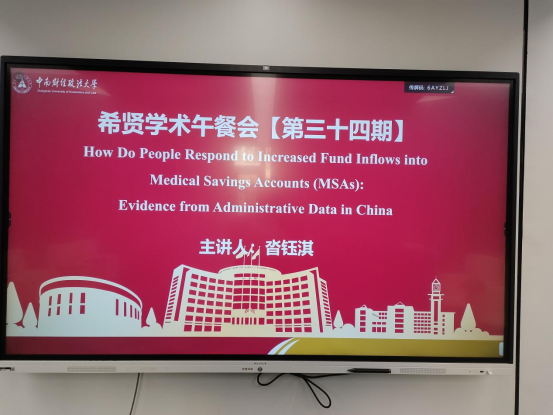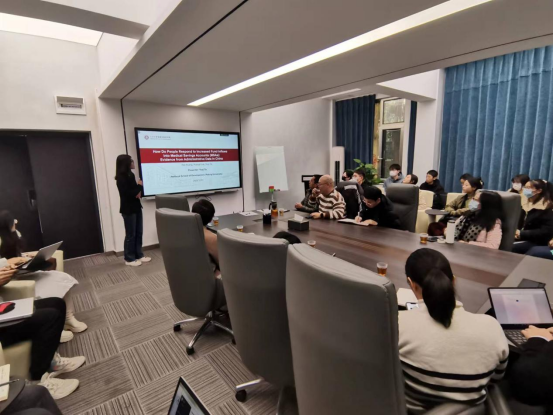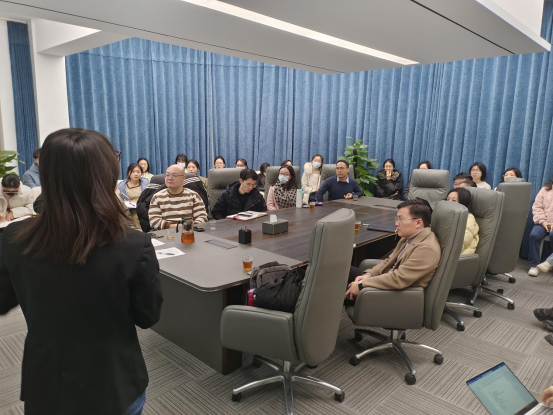On 1 December 2023, the 34th Xi Xian Academic Luncheon, co-organised by IIDPF and the School of Public Finance and Taxation, was successfully held in Conference Room 119, Wenqin Building. As the keynote speaker of this academic luncheon, Dr Ta Yuqi from the National School of Development of Peking University delivered a keynote speech entitled “How Do People Respond to Increased Fund Inflows into Medical Savings Accounts (MSAs): Evidence from Administrative Data in China”. The luncheon was chaired by Associate Professor Zhang Ziyao from the School of Public Finance and Taxation, and attended by more than 40 faculty members and students, including Professor Ye Jingjing and Associate Professor Zhao Ying from the School of Public Finance and Taxation and researchers Dr Wan Qian, Dr Zou Jianwen, Dr Yan Weibo and Dr Zou Wei from IIDPF.

For how people respond to policy-induced increases in fund inflows at specific age thresholds into medical savings accounts (MSAs) over their life cycle, existing studies do not provide systematic explanations and clear conclusions. By utilizing administrative data on the Urban Employee Basic Medical Insurance from a prefecture-level city in China and employing an event study approach, Dr Ta Yuqi finds that the introduction of additional fund inflows prompts enrollees to increase MSA fund outflows by 9 percent and spending on outpatient care and drugstore purchases by about 8 percent. This suggests that the estimated marginal propensity to consume (MPC) from MSA funds lies between 0.5 and 0.6. Meanwhile, she finds significant responses and similar MPCs among individuals with varying socioeconomic statuses. These results highlight that people perceive MSAs as mental accounts earmarked for healthcare expenditure rather than saving vehicles, and healthcare consumption is sensitive to liquidity.

Dr Ta Yuqi gave a wonderful speech to the faculty and students present and at the same time triggered their in-depth thinking. In the discussion session, the attending faculty and students actively interacted regarding the research background, theoretical models and empirical evidence.

